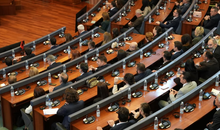
 Flash News
Flash News
Suspected of being murdered, photo emerges of 23-year-old found dead in Shkopet lake
Theth action, resident in tears: I built on my land with my life's expenses, the state should not destroy it
Directors targeted! After Fier and Durrës, Rama arrives in Elbasan
Name/Identification of the 23-year-old found dead near Shkopet Lake
IKM action in Theth, residents come out in protest
"It is a poor country", Reuters breaks down the Rama-Meloni agreement: What benefits Albania
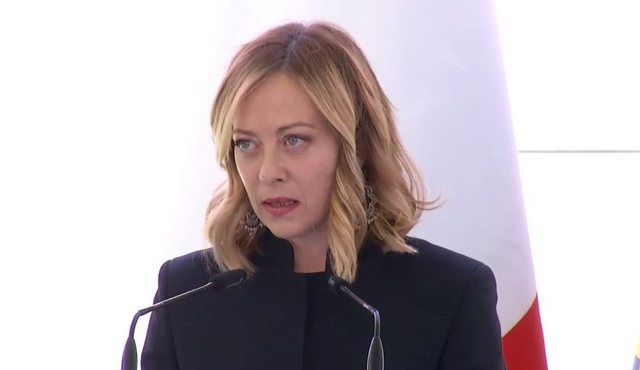
The Prime Minister of Italy, Georgia Meloni was today in Gjadër, the area covered by the Italy-Albania cooperation protocol on migration issues.
Reuters has devoted an article to this visit, breaking down step by step what the Rama-Meloni pact envisages.
Full article:
Italian Prime Minister Giorgia Meloni visited Albania on Wednesday, where her government plans to build reception camps to house thousands of migrants caught at sea.
Seeking to curb migration to Italy, Meloni signed an agreement with Albania last year to send some asylum seekers to the Balkan country and process asylum claims there.
Here are some facts about the plan.
WHAT'S IN THE DEAL?
The deal, agreed for the first five years, calls for the landing of 36,000 migrants a year at the Albanian port of Shengjin, about 75 km (45 miles) south of the country's capital, Tirana. Their cases will be treated at a center being built at a nearby airbase in Gjadër, which can hold 3,000 people.
Both facilities will have Italian staff and operate under Italian jurisdiction. However, external security will be provided by Albanian guards.
CAN ANY MIGRANT BE SENT TO ALBANIA?
No. Only those immigrants who come from countries that Italy considers safe will be able to be processed in Albania. There are currently 21 such countries, including Bangladesh, Egypt, Ivory Coast and Tunisia. Last year, 56,588 immigrants arrived in Italy from these four countries.
Meloni said that pregnant women, minors and other vulnerable persons would not be sent to Albania.
HOW MUCH WILL IT COST?
Meloni said on Wednesday that the scheme would cost 670 million euros ($729 million) over five years - 7.5% of what Italy currently spends on its migrant reception centres.
HOW WILL IT WORK?
The idea is that the selected migrants will be sent directly to Albania after being taken at sea. Meloni has said officials will try to process asylum applications within 28 days, much faster than the months it currently takes in Italy.
Anyone whose request is accepted will be brought to Italy.
The vast majority of requests are expected to be rejected because the countries from which the migrants come are considered safe, which automatically limits the scope for granting asylum. Those whose applications are rejected will be detained before their eventual repatriation.
However, this process is very slow because some countries refuse to take back their nationals or set a limited number of returnees. There is a possibility that the center in Albania will quickly fill up with migrants waiting to return home.
It has not yet been determined whether those awaiting a final decision on their refugee status will be able to leave the centers. Many migrants in Italy disappear from reception centers and scatter across Europe, living under the radar.
WHEN WILL IT START?
It was supposed to start this month, but the buildings are still not finished. Meloni said the two centers will be operational from August 1, but added that Gjader would not be able to receive the full planned quota of 3,000 immediately.
WHAT DOES ITALY BENEFIT FROM THE AGREEMENT?
Italian officials have said the deal could help ease congestion at processing centers in Italy. Meloni also said Wednesday that he would try an "extraordinary precaution" for those considering coming to Italy. Albania is not a member of the European Union, it is a poor country and does not offer easy access to the rich north of Europe.
WHAT DOES ALBANIA BENEFIT FROM THE AGREEMENT?
By helping Meloni, the government in Tirana is securing its support as it pushes to become a member of the EU. It is also showing the rest of Europe that it is ready to help the 27-nation bloc deal with one of its most difficult problems in recent years.
Ordinary Albanians have also said this is a way of thanking Italy, which took in thousands of Albanians fleeing poverty after the fall of communism in 1991.
HOW IS IT DIFFERENT FROM BRITAIN'S AGREEMENT WITH RWANDA?
Britain wants to send asylum seekers to Rwanda, but it is a very different plan to Italy's initiative. One key difference is that migrants sent to Rwanda will have to stay in the central African country even if they gain refugee status. Another difference is that, unlike Rwanda, those sent to Albania will be protected by the European Convention on Human Rights.
Latest news


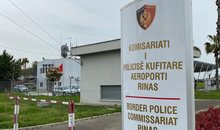
The head of the Rinas police station is reconfirmed in office
2025-07-09 11:25:03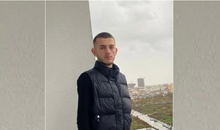

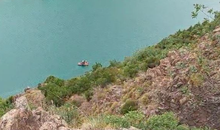
Found dead in Shkopet Lake, 23-year-old has injuries to his throat
2025-07-09 10:41:39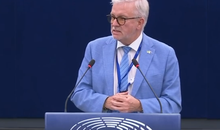


Hoxha: We will have a parliament that will surpass any comedy program!
2025-07-09 10:10:32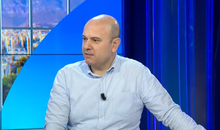

Directors targeted! After Fier and Durrës, Rama arrives in Elbasan
2025-07-09 09:53:57
Name/Identification of the 23-year-old found dead near Shkopet Lake
2025-07-09 09:42:34
IKM action in Theth, residents come out in protest
2025-07-09 09:34:54
Reasons why the EU has not imposed new sanctions against Russia
2025-07-09 09:18:35
DW: Online scams increase human trafficking
2025-07-09 09:01:29

Reported missing by his father, 23-year-old found dead near Shkopet lake
2025-07-09 08:42:13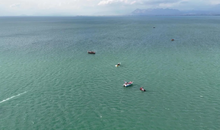

Horoscope, what do the stars have in store for you today?
2025-07-09 08:25:44
Sun and rain, Wednesday with unstable weather
2025-07-09 08:06:58
Posta e mëngjesit/ Me 2 rreshta: Çfarë pati rëndësi dje në Shqipëri
2025-07-09 07:52:02

Tabaku: Salianji bore a political cost that no one in Albania has borne
2025-07-08 22:36:15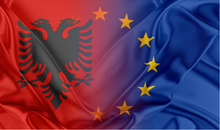


Sekretet për të shijuar verën si një ‘profesionist’
2025-07-08 21:45:06


Albania's Waste Crisis: Toxic Smoke and Deep Governance Problems
2025-07-08 21:13:07
Alarming pollution in Fushë-Arrëz, copper factory waste turns the Fan River red
2025-07-08 21:07:14

Poll/ How do you assess the Prime Minister's intervention in local government?
2025-07-08 20:40:01
28 arrested in Italy and Spain for drug trafficking, including an Albanian
2025-07-08 20:24:14
Residents clash with police in Theth: We are on our land
2025-07-08 20:11:41
Death of 27-year-old in Lipjan, Osmani: To be investigated independently!
2025-07-08 20:06:52
Trump promises US will send more weapons to Ukraine
2025-07-08 19:54:25

EU targets health, education, police and cadastre as areas of corruption
2025-07-08 19:23:34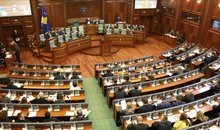




Salianji after his return: I did not oppose for functions, but for vocation
2025-07-08 18:23:15
Will he run in the 2029 elections? Here's how Salianji answers
2025-07-08 18:16:09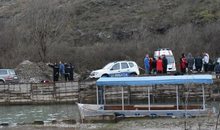
Boat captain drowns after diving into water to save two tourists in Shkodra
2025-07-08 18:05:12
Salianji from the DP headquarters: I brought a drug trafficker to justice
2025-07-08 18:03:26
After Fier, Rama "landes" in Durrës, dismissals expected
2025-07-08 17:53:32
Ervin Salianji arrives at the blue headquarters, welcomed by supporters
2025-07-08 17:45:12

EU approves final steps for Bulgaria's Eurozone membership
2025-07-08 17:43:06

Zhupa after Salianj's release: Inspiration for every opposition member
2025-07-08 17:19:39
Actor David Killick passes away
2025-07-08 17:09:23



Threatened with dismissals, Rama arrives at the Fier municipality
2025-07-08 16:39:19
Extreme temperatures temporarily close Acropolis in Greece
2025-07-08 16:30:34

A plot of cannabis is discovered in Mazha, Kruja
2025-07-08 16:13:48

Republika Srpska allocates additional 22 million euros for lobbying in the US
2025-07-08 15:52:04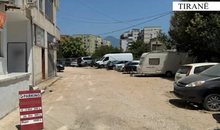

Spices that protect you from mosquitoes!
2025-07-08 15:30:03

Accident on the Vlora-Qeparo axis, one injured
2025-07-08 15:11:52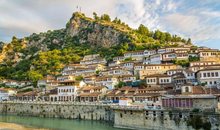
Berat, 17 years part of UNESCO's world heritage
2025-07-08 15:03:30
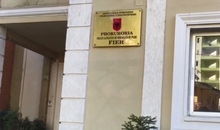

Cost of living increases, inflation rises to 2.4% in June, driven by food
2025-07-08 14:29:54
VIDEO/ Restaurant roof collapses in Italy, one victim and ten injured
2025-07-08 14:18:44
Requested release from cell, Supreme Court leaves Veliaj in prison
2025-07-08 14:07:41
TikTok shutdown/ Austrian media: Rama benefited politically from the app ban
2025-07-08 13:48:25
Acropolis temporarily closed due to heat
2025-07-08 13:31:09



Salianj's release/Berisha: He was politically condemned by Rama and Xhafa!
2025-07-08 13:00:13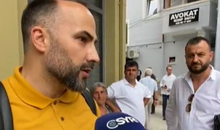

Knife attack on Peshkopia Boulevard
2025-07-08 12:44:10


Fier Court decides on the conditional release of Ervin Salianj
2025-07-08 12:15:23
Cost of living increases, inflation rises to 2.4% in June due to food
2025-07-08 12:00:16

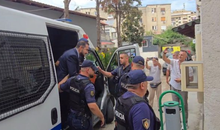
Requesting conditional release, Ervin Salianji arrives at the Fier Court
2025-07-08 11:16:36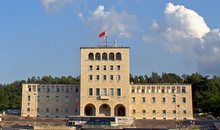
The first phase of university applications begins today
2025-07-08 11:10:52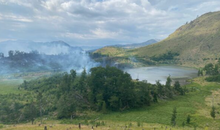
Fire in Lura, flames endanger the National Park
2025-07-08 10:53:43
Trump warns of 35% tariffs on Serbia and 30% on Bosnia and Herzegovina
2025-07-08 10:37:32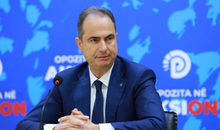
Thethi rooster and the dung cock
2025-07-08 10:24:01

Fire in Dukat endangers Llogara National Park
2025-07-08 10:01:39
International drug search: 36-year-old arrested in Durrës (NAME)
2025-07-08 09:50:48
Thethi, tourists "criticize" modern trend
2025-07-08 09:39:54
Fire on Mount Dukat still active, Llogara National Park at risk
2025-07-08 09:28:12
Veliaj's appeal to be heard today in the High Court
2025-07-08 09:16:02
"Bad sign for democracy"/ Parliament neglects reporting by institutions
2025-07-08 09:04:56
Today's hearing at the Fier Court, Salianji requests conditional release
2025-07-08 08:56:39
